Shops can be subject to fines up to $5,000 for each citation if your employees fail to adhere to certain requirements — here’s what you need to know
Are you aware that, under the recently implemented California Bureau of Automotive Repair (BAR) citation and fine program, your business could be subject to fines up to $5,000 for each citation if your employees fail to adhere to specific disclosure and documentation requirements? Additionally, violations will be publicly highlighted on the BAR website for at least seven (7) years.
Violations include:
- Improper Estimates
- Customer Authorization
- Invoice Requirements
- Deviations from BAR Accepted Trade Standards
- Return of Parts
- Sublet Repairs
- Advertising and Guarantee Requirements
- Failure to maintain and produce records and much more
Here’s a Question & Answer for all California automotive repairers:
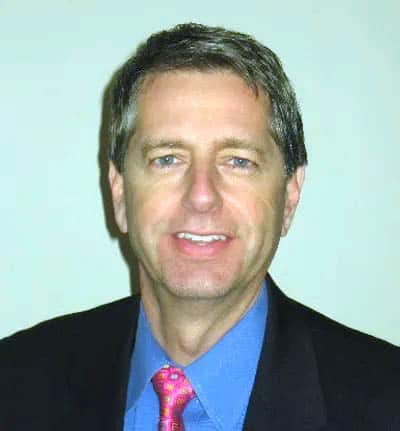
Q. Why should automotive repair shops (e.g. mechanical, collision, new car dealer, independent, preventative maintenance, tire, mobile, etc.) care about the new BAR Citation and Fine Program?
A. BAR monitors and regulates your automotive repair business. Failure to comply with regulations can lead to financial losses and potential harm to your business reputation, as BAR citations are published on their website, visible to competitors, insurers and customers, posing a threat to your standing in the industry. Essentially, it’s akin to a public branding, like the modern day “Scarlett letter.”
Q. Explain how this new BAR citation program works?
A. If you receive a consumer complaint, the BAR will investigate and determine whether a citation and fine is warranted. If the citation is issued, the business may have the option to appeal the citation and fine through a remote process conducted by a three-member panel representing BAR, the public, and the automotive repair industry. If the business is eligible, it may prevent public disclosure of the citation on the BAR website, provided the responsible business owner and employee complete a BAR-approved remedial training program (similar to traffic school).
Q. Should I be concerned if my employees including service writers and estimators have worked in the industry for years?
It depends. Ask yourself: Do your employees have a clear understanding of the laws related to BAR disclosure and documentation requirements as outlined under the Automotive Repair Act? Chances are they are not. Because most automotive service training courses are focused on increasing sales, customer retention and CSI scores, not teaching the various BAR laws and regulations that affect your business. Customers expect that the auto repair shop they select possesses not only the expertise to repair their vehicle but also adheres to California Consumer Protection laws.
Q. Shouldn’t the automotive shop management software companies be responsible for BAR compliance issues if I get a citation and fine?
A. Automotive shop management companies that market their software to shops in California are not subject to BAR oversight. There have been reports to BAR that some software programs put shops at risk of violating laws and regulations. There have also been legislative hearings to discuss the merits of BAR oversight of shop management companies, but nothing has materialized so far. Automotive repair shops are liable for non-compliance and have been advised by the BAR to verify the software’s compliance before use and to override or overwrite the software as needed to ensure compliance.
Q. What can a business do to avoid BAR issues in the first place?
A. Address consumer concerns promptly to prevent them from escalating into BAR complaints. Don’t assume your employees know all the BAR laws and regulations and that your management software company is BAR compliant. Ensure that your employees undergo proper training by a certified BAR provider before you have a BAR representative visit your shop. This is important because the BAR will evaluate several factors before deciding whether to issue a citation and determining its corresponding amount. If the employee was trained in the relevant subject matter and still violated the regulations, it may weigh in favor of finding “good faith” on the part of the shop and weigh against issuing a fine. Conversely, inadequate training leading to a violation may show “bad faith”, influencing the fine amount. For more information on training and providers go to the BAR website at https://www.bar.ca.gov/calarc
Jack Molodanof is president of Molodanof Government Relations, an attorney and a lobbyist who has been specializing in automotive legislative, administrative and regulatory law for the last 30 years. He is an considered an expert in California for the automotive repair industry and represents several of the largest statewide automotive repair associations including the California Autobody Association, the Automotive Service Councils of California and the California Automotive Business Coalition. He serves on the California Bureau of Automotive Repair (BAR) Advisory Group, which provides input on BAR programs. Molodanof is a certified BAR Remedial Training Provider authorized to instruct on laws and regulations related to the Automotive Repair Act and co-founder of EduTech, a company that offers on-line BAR educational courses. Contact him at jack@mgrco.org.





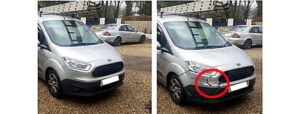
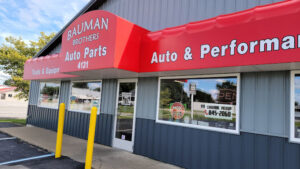
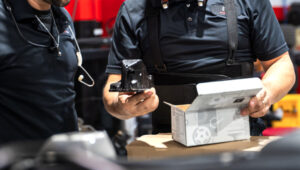


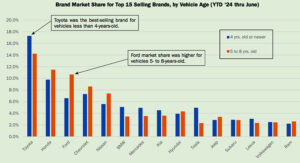
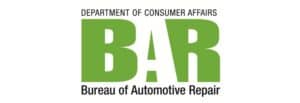


Comments are closed.